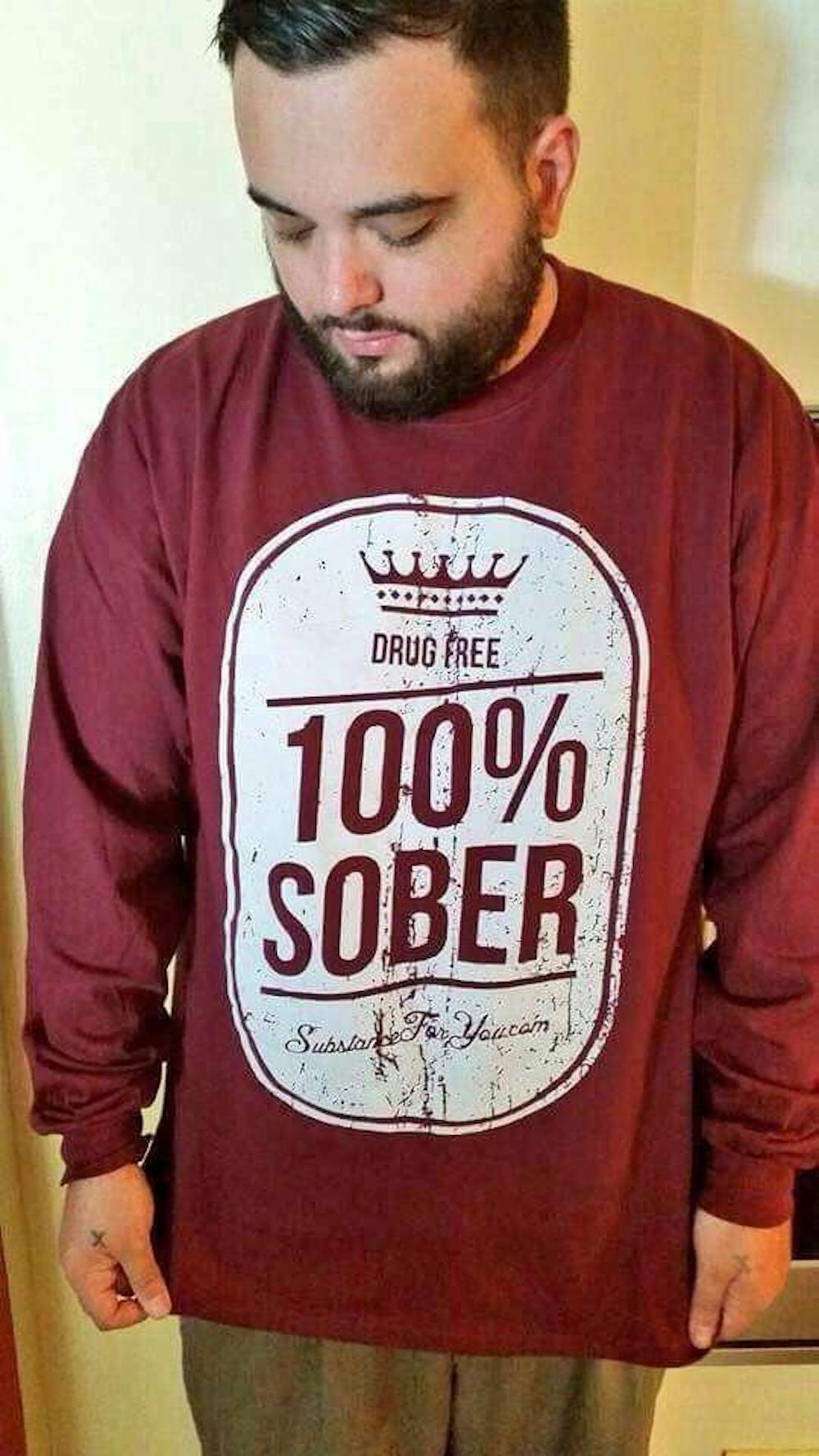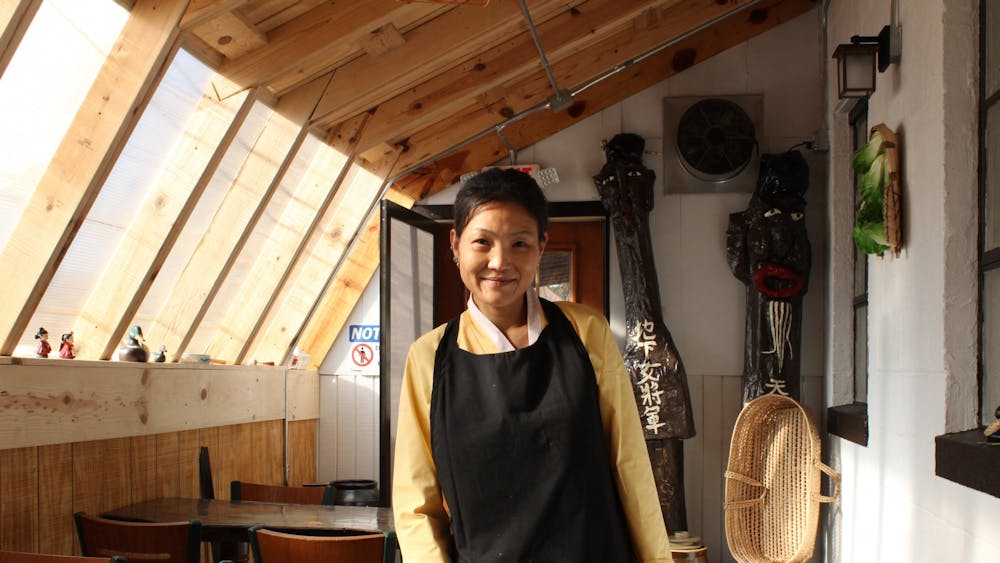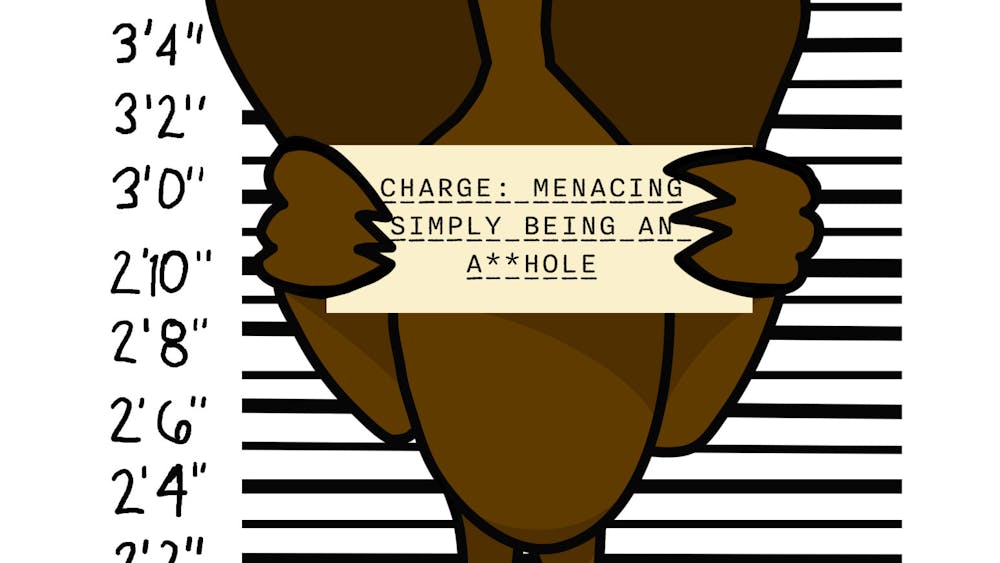New minor addresses substance abuse

Courtesy Photo | Brian McCollum
Brian McCollum showcases his clothing line available on substanceforyou.com.
Substance abuse doesn’t just prey on a certain demographic; it reaches across a range of ages and people from all walks of life. This is just one of the things students will learn when minoring in Substance Abuse Education.
“The minor has been around for a long time,” said adviser and Health Sciences faculty member Marty Malcolm. “The minor has seen substantial growth, it went from around 50 students to over 120 in just a few years.”
Substance Abuse Education is one of the four minors offered through the College of Health Professions. This minor includes 18 credit hours of required coursework and six hours in related electives for a total of 24 semester hours. The minor covers prevention, intervention, treatment and therapy.
Malcolm has been the adviser for the program for the last twelve years and has experience as a substance abuse therapist for in and out-patient care for twelve years. He encourages anyone going into something like social work, criminal justice, family issues, psychology, community health or even exercise science to consider having this minor.
The program is currently working to make substance abuse education available as a master’s program with licensing for prevention, intervention and peer support.
Central Michigan University is working with the Michigan Certification Board for Addiction Professionals to further the certification. It’s one of the only minors offered where students can do class work and get certified.
“We have close ties with the 1016 home in Midland,” Malcolm said. “It’s a recovery network right in the area. We work closely with them and other houses near by to help the education process. We’re also trying to get graduate level class where students can get experience in the field and proper training within multiple agencies.”
Clare senior Katie Jourdain found her interest in substance abuse education through a co-op program offered in high school. She worked at a pharmacy where she got to see substance abuse first-hand and how it impacts the lives of many.
“I decided to major in psychology when I got to CMU,” Jourdain said. “When I was a junior, I still didn’t have a minor and ended up talking to Malcolm. That day I decided to sign as a substance abuse minor and am hoping to focus on that within my psychology career.”
The minor includes a class on diversity, which is important as many do not realize substance abuse reaches to multiple demographics and not just low-income individuals.
Impact of Education and Experience
Plymouth senior Brian McCollom is a sociology major and a substance abuse minor. He became interested in this academic path because they both deal with inequalities.
“As a teenager I had both mental health and personal substance abuse issues,” McCollom said. “I guess I was drawn to the deviant aspect of the sociology and substance abuse programs. At first, I wanted to do just social psychology, but there wasn’t a good program for it anywhere; it was too defined.”
After choosing the sociology field, McCollom started learning about human culture and social aspects of life, which helped him construct what was going on in his own head about addiction. Eventually he wrote his first book called “Illicit: Life in the Eyes of an Addict,” which has sold internationally.
At 11 years old, McCollom was diagnosed with mental health issues and was prescribed anti-depressants. At 13, he started abusing drugs and alcohol. At 18, he first became clean, but relapsed at 20 for four weeks. The Plymouth native is now four years clean and is on a bright path to recovery.
“Once I wrote my first book and put everything out there, people seemed to like my writing. It was very vulgar and in your face, just like addiction,” McCollom said. “I wondered, what can I do next? How can I make this available to people?”
McCollom and a friend got together and created a website as a way to start blogging about addiction and having other people submit their own posts. No one would have to pay for a book or pay royalty fees to other companies if he put his own book on this site, McCollom said.
The two now have a clothing line and resources for people interested in substance abuse or recovering from addiction. Their main focus is free information, McCollom said, which is what he would have liked to have to get him over that “proverbial hump” when he was getting clean.
“I kind of let people live my life through these blogs so they don’t make the same mistakes I did,” he said.
Along with “Substance For You,” McCollom has yourinneraddict.com, where he first published “Illicit” and has recently partnered with wearenotvoiceless.com. He is a blogger for each of the sites and social media strategy planner. “Substance For You” on Twitter alone has 28,000 followers, Your Inner Addict has around 35,000.
They have sold electronic books, paperbacks and items from their clothing line internationally and have reached every country besides Antarctica.
McCollom has also started coming out with guides to recovery, trying to stray away from the 12-step programs like Narcotics and Alcoholics Anonymous. They are trying to publish holistic approaches, going away from the standard way of looking at addiction to appeal to those who are interested in approaches that are more personal and natural.
“It’s easy to read about substance abuse in textbooks,” McCollom said. “But it’s hard to apply and treat someone who is going through the woes of addiction. Most of the people in these classes have dealt with it or need training to deal with an addict.”
McCollom said the first step to helping an addict recover is to understand their pain and want to help them overcome it.
“If you don’t actually know these people’s struggles, you could be their catalyst to relapse instead of recovery,” he said. “In the field of substance abuse education, you have to understand that this is someone’s life, and you have to get to know this lifestyle without being in it yourself. Want it, understand it, put yourself in their shoes; think if you were in that much pain. What would you do to solve it?”




